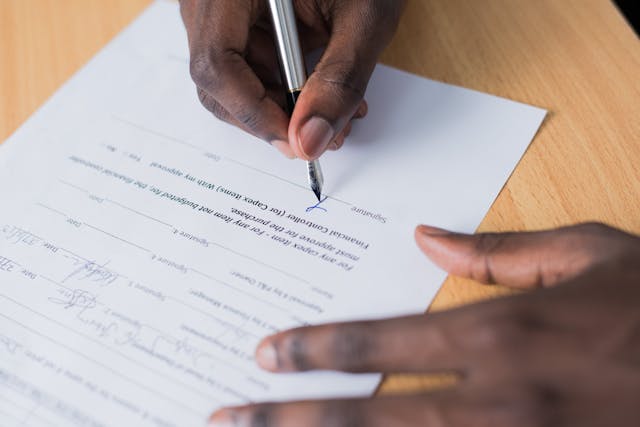A Power of Attorney is a right granted by one person to another or to others, empowering them to do certain things or to take certain decisions on their behalf, and in their name. In the Nigerian legal system, a power of attorney can be used to accomplish a range of tasks, and is particularly relevant in land transactions.
Defining Powers of Attorney
As pointed out, a Power of Attorney is a legal right granted to a person or persons known as donees, by the original right holder, called the donor. In stricter legal terms, the Supreme Court of Nigeria, in Ude v. Nwara, defined a power of attorney as:
“…a document, usually, but not necessarily under seal, whereby a person seised of an estate in land authorizes another person (the donee) who is called his attorney, to do in the stead of the donor, anything which the donor can lawfully do, usually clearly spelt out in the Power of Attorney.”
From this definition, it is clear that a power of attorney is both the authorization to do certain things and the document or instrument that formally conveys the authority.
While the definition above focuses on the use of powers of attorney in land transactions, it retains the same essential form and meaning when applied in other contexts.
As powers of attorney most often tend to be used in the context of land transactions in Nigeria, that will be the focus here.
What are the Key Features of Powers of Attorney?
One of the most fundamental things to understand about powers of attorney is that they are merely instruments of delegation only
This means that a Power of Attorney can delegate a right but cannot completely transfer or convey the right. In other words, the donor always retains their rights or interests in respect of the subject of the power of attorney. This key principle was established, again, by the Supreme Court in the previously cited case of Ude vs. Nwara.
In Chime vs. Chime, a similar principle was laid down when the Supreme Court held that a power of attorney, on its own, does not transfer interest in land. A holder of a Power of Attorney can transfer interests in land on behalf of, and in the name of the donor, but the mere grant of a Power of Attorney does not vest the donee with an interest in the property.
This principle should be read and applied with caution, as in the case of Ibrahim vs. Obaje, the Supreme Court has subsequently held that a Power of Attorney can be an instrument for the transfer of an interest in land but only in rare cases.
Flowing also from Ude vs. Nwara, it can be said that a power of attorney must clearly state what specific acts the donee can do, or the particular interest in respect of which the donee may act.
Revocation of a Power of Attorney
Powers of Attorney once granted can generally be revoked at any time – except where a power of attorney has been granted to a donee in fulfilment of an existing obligation or in exchange for some consideration.
A Power of Attorney may also be irrevocable where it is stated to be so in the deed of attorney (the deed creating the power of attorney); however, in such cases, if there is no unfulfilled consideration, the Power of Attorney will abate after 12 months.
Other than in the instances outlined above, a Power of Attorney can be revoked:
- Expressly, where the donor declares it revoked;
- Impliedly, by the donor themselves executing the act authorized by the Power of Attorney
- By the operation of law, i.e. in the event of the death of the donor, or by the effluxion time in respect of Powers of Attorney granted for some consideration.
Other Things to Note About Powers of Attorney
- In the case of Abina v. Farhat, the Court held that a Power of Attorney must be under seal when it grants the power to execute a deed. The revocation of such Power of Attorney will also need to be done by deed.
- In Lagos State, a Power of Attorney can only be granted with the consent of the governor of the State where the instrument donates powers in respect of leases and sub-leases.
Are you looking to create a power of attorney? It’s always a good idea to confer with your lawyer before you do so, for more detailed guidance and direction.
